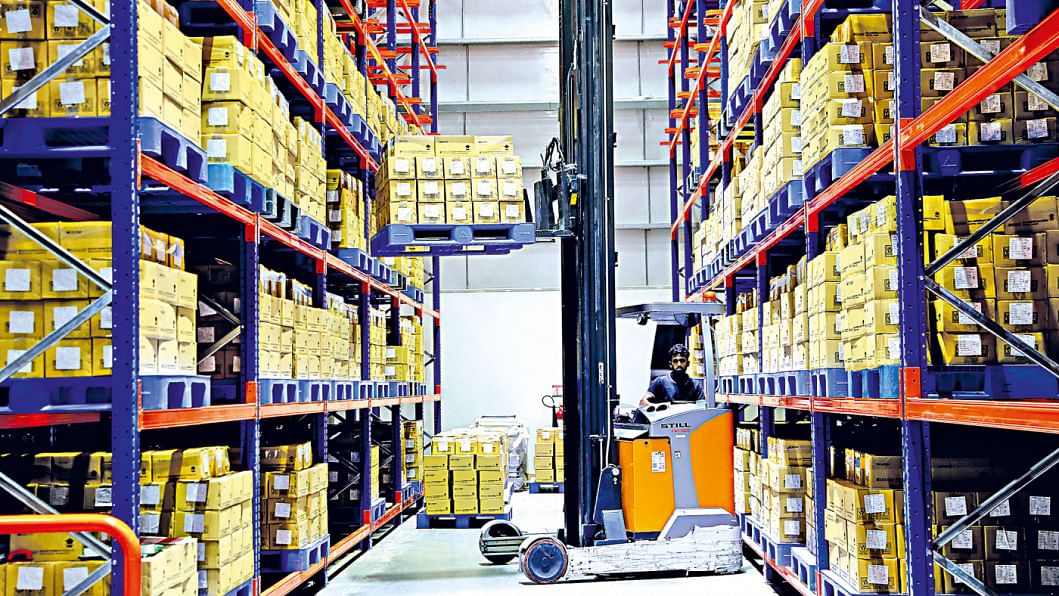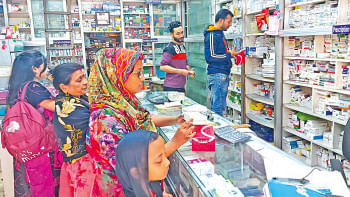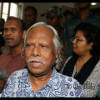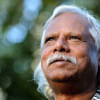Starting from nowhere, pharma sector becomes a lifesaver
The year 1982 was a watershed in the history of the pharmaceutical industry of Bangladesh as the government stepped in to lay the foundation for its stellar growth in the subsequent decades.
In the 1970s, the capacity of the local drug companies in the war-torn country was insignificant and they could produce less than 20 percent of the required drugs, so a majority of them had to be imported. Local companies were able to make simple vitamins, mixtures, and tonics.
This began to change after the government came up with the Drug Control Act, banning the imports of medicines that could be locally produced and making it mandatory for manufacturers to make essential drugs listed by the authorities.
Price controls were introduced for a number of products such as tablets and anti-biotics, thus ending the scope for price gouging to a large extent. Consequently, the domestic production of all types of drugs surged, the supply of emergency medicines increased, and the chance to make substandard drugs narrowed. The law also made it compulsory to employ local pharmacists, chemists and microbiologists in the pharmaceutical industry, creating a skilled workforce.
There were 166 medicine makers in Bangladesh in the early 1980s. Of them, eight were foreign companies, which controlled 70 percent of the market. Today, local companies meet 98 percent of the demand for pharmaceuticals while only 2 percent of drugs, mainly high-end ones, are imported. This has made the pharmaceutical sector one of the few successful cases in the industrial sector of Bangladesh. Over the years, foreign companies left the market as their profit margin squeezed.
Behind this success was a leading force, Zafrullah Chowdhury, widely regarded as the father of Bangladesh's national drug policy. That policy pioneered a way through a maze of modern, Western-manufactured drugs and developed a more affordable health strategy based, in part, on the local manufacture of a relatively small number of essential generic drugs.

What is more, Bangladesh is the only nation among the 48 least-developed countries (LDCs) that is almost self-sufficient when it comes to medicine production.
"As many countries don't have the necessary facilities, Bangladesh is rapidly becoming a global hub for manufacturing of high-quality and low-cost generic drugs," said Abdul Muktadir, chairman and managing director of Incepta Pharmaceuticals.
Bangladesh's advances in the sector are highlighted by the fact that nine drug manufacturers have already received approvals from regulators in the United States, the European Union, and Australia as well as from the World Health Organisation.
"The number of such institutions will increase to 20 very soon," Muktadir added.
At present, 213 pharmaceutical companies are operating in Bangladesh and the industry clocks an average annual growth rate of 12 percent.
According to industry people, Bangladesh has an adequate supply of a skilled workforce needed for the pharmaceuticals sector. About two lakh people are employed in the sector directly and another three lakh indirectly.
On the back of rising per capita income, the local market has grown three times in the last decade: it was Tk 9,000 crore in 2012 whereas it has gone past Tk 30,000 crore now. The global market for generic drugs is worth about $400 billion. This means that even one percent of the market share could boost Bangladesh's exports by $4 billion, according to Muktadir.
"Apart from China, India, and some nations in the West, Bangladesh has no equal in medicine production. As a result, we have a huge growth opportunity in the global drug market," he said.
In terms of local production, Bangladesh is also ahead of countries such as Singapore, Malaysia, the Philippines, and Vietnam, which rely on external markets to meet 60 to 80 percent of their national demand, the entrepreneur said.
Currently, the sector ships products to around 150 countries, fetching $175.42 million in the last fiscal year.
SM Shafiuzzaman, secretary general of the Bangladesh Association of Pharmaceutical Industries (BAPI), which represents the local drug-makers, said the sector's transformation provides ample reasons to rejoice.
But he also points out that the sector is reliant on the import of raw materials. "So, we need to develop active pharmaceutical ingredients (APIs)."
Shafiuzzaman says the BAPI is working with the government to remove all obstacles hindering the sector's growth.
SM Abdur Rahman, professor and chairman of the Department of Pharmacy at the University of Dhaka, gave credit for the sector's growth to the companies.
"If the medicines made in Bangladesh were not of international standards, they would not be exported to the US and the EU. I have personally visited many pharmaceutical companies and seen their improvement over the last 15 years."

Mustafizur Rahman, a professor of the pharmacy department at Khulna University, said there is no doubt that the development of the industry is helping the healthcare sector.
"Some 40 companies are doing very well and ensuring the supply of world-class life-saving drugs in the local market," he said, adding that the companies are playing an important role in the economy.
Monjurul Alam, chief executive officer of Beacon Medicare Ltd, said if the sector had not developed, the value of Bangladesh's medicines imported would have been five times higher than the current level.
"Therefore, there is no scope to consider pharmaceuticals as a small sector."

 For all latest news, follow The Daily Star's Google News channel.
For all latest news, follow The Daily Star's Google News channel. 








Comments